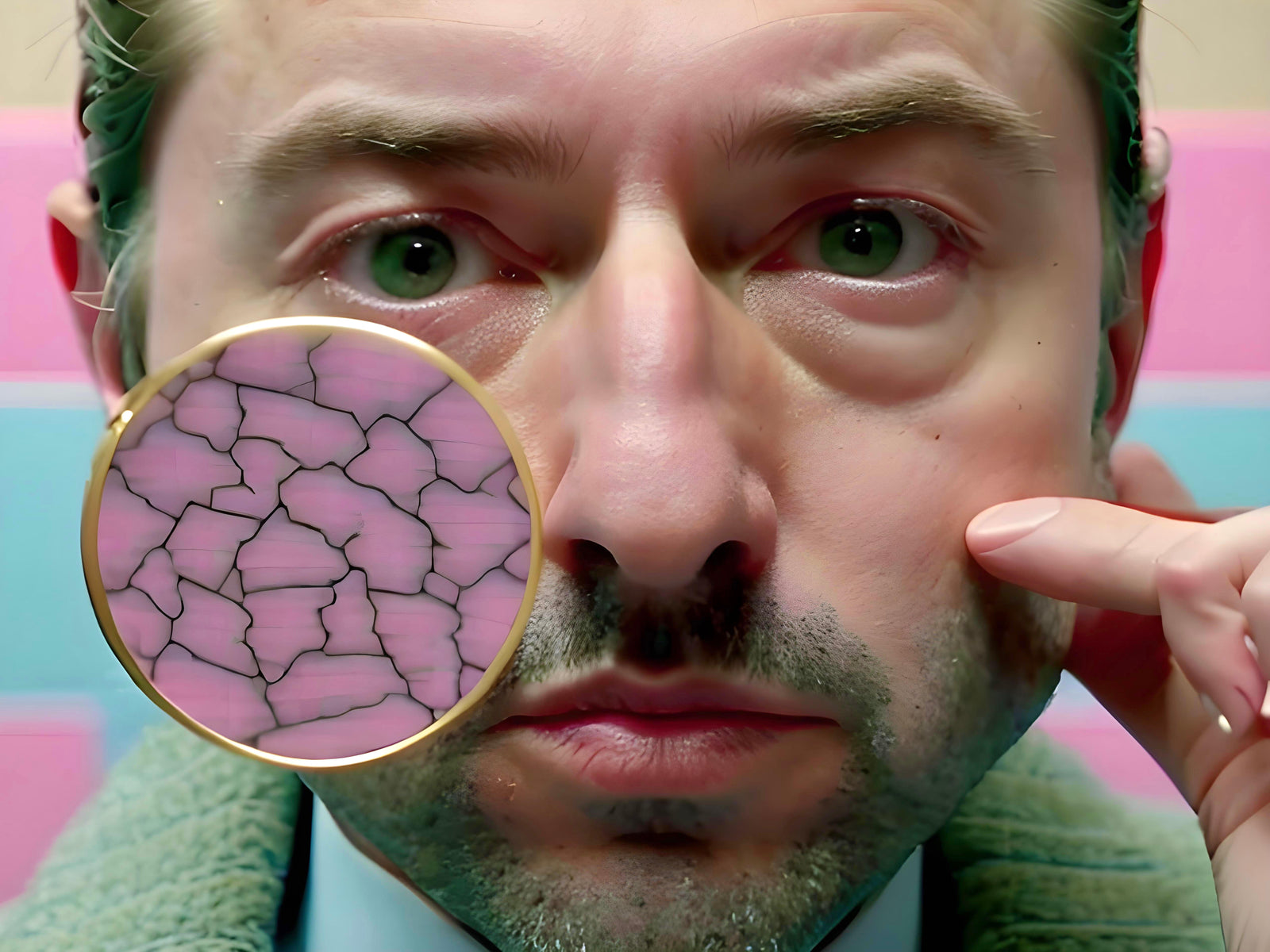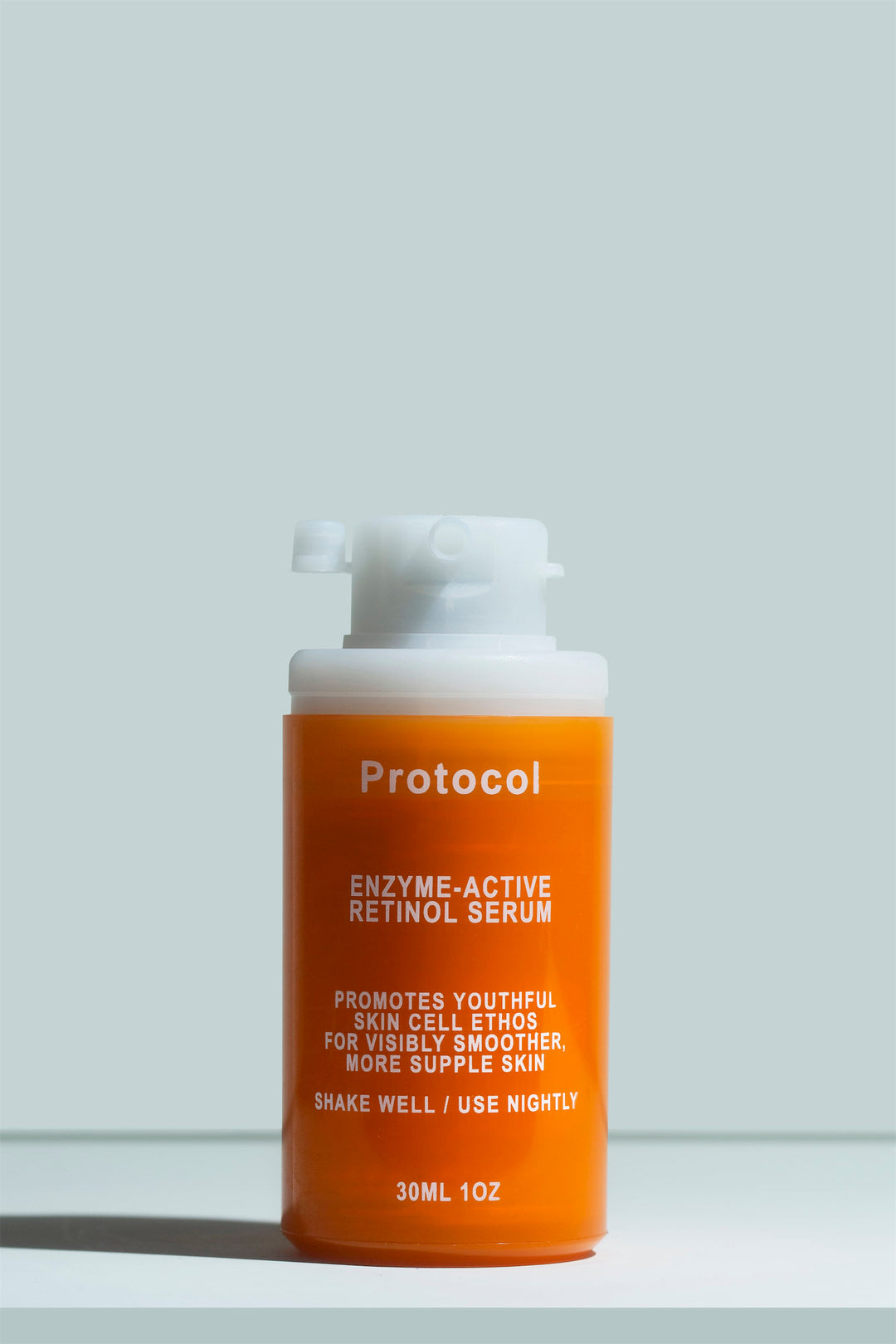Dehydrated Skin: Know the Signs and Treat Skin Dehydration

Is your skin suffering from dreaded dehydration? Newcomers to skincare often have to deal with dehydration before addressing any other skin concerns. From overwashing to weather, there are many factors that can leech water from the skin, leading to discomfort, flaking, and the worsening of every other skin issue.
Learning to recognize the signs of dehydration and how to combat it is fundamental to having happy, healthy skin. In this post, we’ll explain exactly how you can do that!
What is skin dehydration?
Dehydration is a temporary condition when the top layer of the skin, the stratum corneum, lacks water. In most cases, this is a temporary state. It can occur due to a variety of causes, and while temporary dehydration is not a big deal, it can take a serious toll on your skin when it’s chronic.
Having water embedded in the stratum corneum is vital to skin health. When the skin is hydrated, it follows a healthy renewal process (i.e., the skin cell turnover rate). Dead skin cells have an easier time shedding, as well. What that means for you is that less exfoliation is needed. In fact, for some, well-hydrated skin means no exfoliation at all!
Dehydration has a huge impact on how your skin looks and feels. Hydrated skin feels soft and looks plump, springy, and glowy, which most people interpret as healthy and youthful.
When the skin is dehydrated, it can become very dull and rough, with a tight, uncomfortable feeling. Wrinkles can seem more prominent, as well. Where it gets really bad is when dehydration becomes a chronic issue. When the skin is constantly dehydrated, it becomes incredibly sensitive and easily compromised. Chronic dehydration often comes hand in hand with a “broken skin barrier”, meaning that the skin becomes less effective at keeping the bad things out and the good things in, often resulting in dermatitis or infections.
Signs your skin is dehydrated
So how can you tell if your skin is dehydrated? Here are the key signs to look for.
- Your skin feels tight and uncomfortable - almost like it’s a little too tight for your face. This will be especially noticeable when making facial expressions.
- Wrinkles or fine lines may appear more prominent almost overnight.
- You may have visible dead skin buildup, with patchy spots of flakiness or visible dead skin embedded within pores.
- Your skin may look a little dull, and lack “glow” or reflectiveness (although this may not be true for those with oily skin).
- Your skin can become more prone to irritation, with increased chances of rash-like flare-ups or dermatitis from things that don’t normally irritate your skin.
- Serums or moisturizers might sting as they sink into your skin.
- Breakouts may take longer to heal since dehydration impacts the skin’s self-repair mechanisms.
Remember - how your skin feels is just as relevant as how it looks.
What causes skin dehydration?
There are a lot of external and internal factors that can disrupt this natural process and lead to skin dehydration:
- Harsh or excessive cleansing: Cleansing the skin too often or with a cleanser that leaves your skin feeling squeaky or tight immediately after use is a frequent cause of dehydration. Most cleansers are detergent-based, so they work by binding to oils and breaking them down through emulsification. When you rinse away a cleanser, you’re also removing the sebum and intracellular lipids that help the skin retain water, which increases transepidermal water loss.
- Eczema/dermatitis: Dermatitis or eczema are the science-y terms for skin irritation that results in visible rashes or red/scaly patches. When the skin experiences this kind of breakdown, the result is usually higher transepidermal water loss (TEWL), which correlates with dehydration.
- Insufficient water intake: Indeed, not drinking enough water can also impact your skin. The dermis and epidermis both depend on the body’s water content to stay moist, so not drinking enough can lead not just to regular stratum corneum dehydration but deep dehydration.
- Low humidity: When the humidity is low, the skin has a harder time retaining water, so TEWL goes up. Without proper skin care, this greatly increases your chances of dehydration.
- Dry skin: Dryness isn’t the same as dehydration, but the two often come hand in hand. If your skin doesn’t produce much oil, it’ll have a harder time hanging on to moisture which is why those with dry skin are more prone to dehydration.
- Free-radical damage: We tend to focus on the way free-radical damage from sun and pollution exposure can lead to premature aging, but this type of damage can also impede the skin’s ability to retain moisture.
- Age: As we get older, our body’s regeneration capacity slows down, which leads to reduced production of many of the body’s essential components. Those components include lipids and hydrating agents that exist naturally in the various levels of the skin (often called Natural Moisturizing Factors) and ensure hydration.
The skin has a natural ability to retain moisture, thanks to sebum, the intracellular lipid
matrix, and natural moisturizing factors that attract water from the lower layers of the skin.
It’s a complex process involving interactions between various components of the skin at different layers, which is why it can be disrupted in so many different ways.
How to deal with dehydration
And now, here’s what you’ve been waiting to learn - how should you deal with skin dehydration? By following these steps, your skin will bounce back to a happy and nourished state soon enough, and you’ll be able to prevent future dehydration from occurring again.
- Make the soak and seal method a regular part of your routine. That means saturating your skin with water, either in the shower or through repeated splashing, and then immediately applying a thick occlusive that will seal the water inside, like Water Lock.
- At least once a day, use a comprehensive moisturizer that includes both water-attracting humectants (i.e., glycerin, hyaluronic acid) and water-locking occlusives (silicones, petrolatum, shea butter, or squalane).
- Always apply your moisturizers or serums to damp skin.
- Use gentle cleansers that don’t leave your skin feeling dry or tight.
- Don’t cleanse too often - once a day is more than enough for most people.
- If your skin has dead skin buildup and no irritation, exfoliate gently with an AHA-based product.
- When washing your face or showering, keep the water cool or lukewarm.
- Always apply sunscreen before heading outside or standing close to sunny windows.
To learn more about these tips, and the “why” behind them, check out our full post on how to fix dehydrated skin.
Skin dehydration vs Skin type
It can be really hard to understand your skin type when it’s dehydrated. That flakiness and tight feeling make the skin feel dry, but they don’t necessarily mean that you have a dry skin type. In this section, we’ll explain what dehydration looks like in different skin types, and what you should keep in mind.
Dry skin and dehydration
Having dry, dehydrated skin is a classic scenario since your skin contains fewer lipids and oils that can keep moisture inside. If this is your skin type, you’re probably more dehydration-prone as a result, so following a moisturizing skincare routine for dry skin and avoiding factors that can lead to dehydration is very important.
Oily skin and dehydration
Having oily, dehydrated skin is hugely frustrating, but it’s also common. When your skin is very oily but also feels tight or is prone to flakiness, figuring out an appropriate oily skincare routine can be very confusing.
Those with oily skin often neglect using moisturizers or over-cleanse their skin in an effort to combat the oiliness. Unfortunately, this can cause the skin to lose a lot of water, leading to dehydration symptoms. Over time, it can also make the skin much more irritable and prone to breakouts.
If you have oily skin, it’s important to keep balance by cleansing gently and using light moisturizers that’ll restore hydration to your skin without making you feel gross or greasy. Occlusives like Water Lock are an excellent option because they will help seal moisture into your skin but with a silky, non-greasy texture.
Combination skin and dehydration
Just like those with oily skin, those with combination skin can also experience dehydration, often as a result of harsh care or over-cleansing (although external factors like weather can also play a role). You’ll want to learn how to develop a flexible skincare routine for combination skin that’s based on achieving balance.
Sensitive skin and dehydration
Sensitivity and dehydration come hand in hand. On the one hand, dehydration makes your sensitivity worse. On the other hand, having sensitive skin means you’re probably more prone to barrier disruption and dehydration. It’s a total chicken and egg situation, but thankfully, following a great skincare routine for sensitive skin while avoiding irritants and triggers will help address both issues.
Will drinking water hydrate my skin?
Skin dehydration and full-body dehydration are two different things. Your skin will get very dehydrated if you don’t drink enough fluids, so drinking more water will help if your entire body is dehydrated. On the other hand, if your body is hydrated but your skin is dehydrated, drinking more water won’t help.
There are many reasons for skin dehydration that have nothing to do with your body’s hydration levels. The most common one is disruption to the skin barrier, which makes it harder for the epidermis to hang on to moisture. The only way to fix that is by following the skin dehydration remedies we mentioned earlier, like using a moisturizer regularly or trying the “soak and seal” method.
Make combatting dehydration your #1 skin goal
Dehydration is a common skin issue for everyone, regardless of skin type. It’s also incredibly harmful to the skin. It can cause or worsen many other concerns, like sensitivity, breakouts, and wrinkles.
No matter your skin goals, adding in a few habits to address or prevent dehydration is key.
We created Water Lock for situations when dehydration is at its worst, with a complex blend of interlocking silicones that create total occlusion over the skin. This formula has a silky feel that makes it a pleasant choice regardless of your skin type. Even once you fix your skin dehydration, it’s a phenomenal moisturizer that’ll keep issues from recurring.
So that’s it, dear skintellectual friends - we hope we’ve inspired you to load up on water, from the inside and outside!




